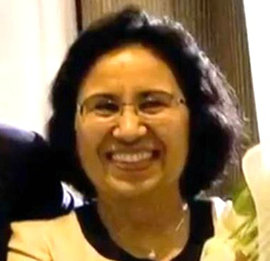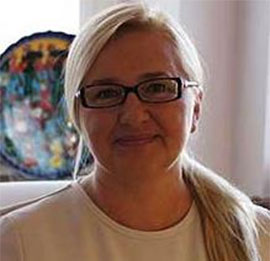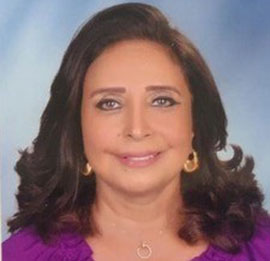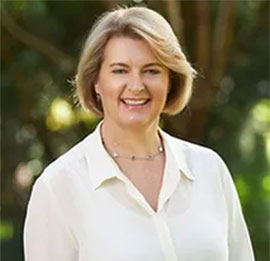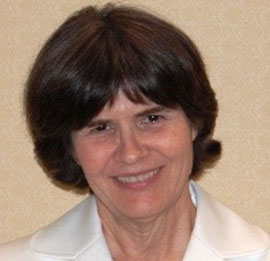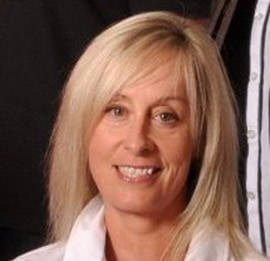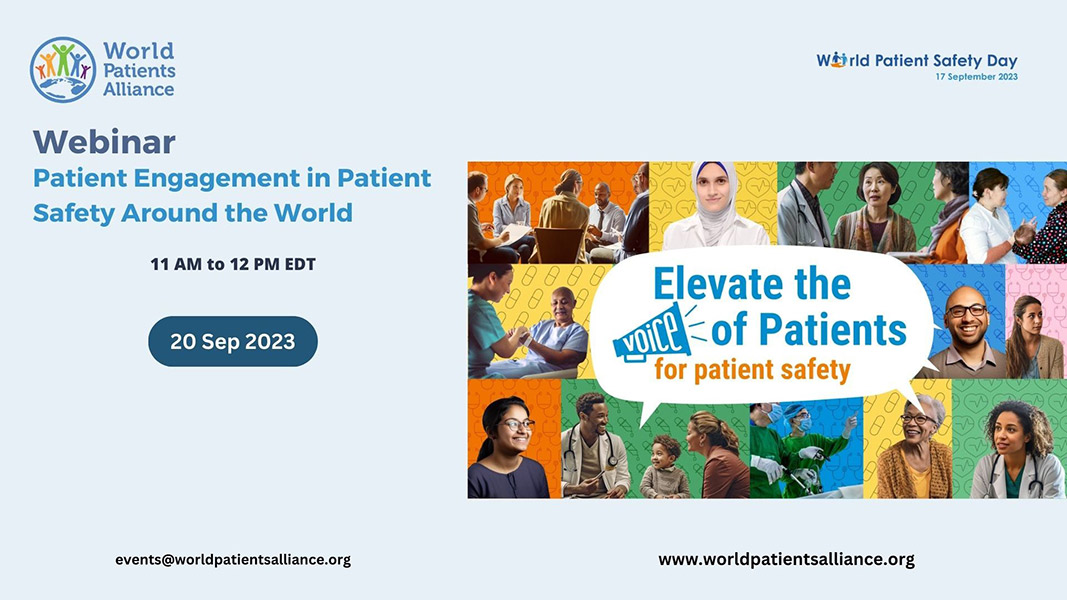
Webinar: Patient Engagement in Patient Safety Around the World
Webinar: Patient Engagement in Patient Safety Around the World
World Patient Safety Day 2023 was observed on 17 September under the theme “Engaging patients for patient safety", in recognition of the crucial role patients, families and caregivers play in the safety of healthcare. Evidence shows that when patients are treated as partners in their care, significant gains are made in safety, patient satisfaction and health outcomes. By becoming active members of the healthcare team, patients can contribute to the safety of their care and that of the healthcare system as a whole.
Patient engagement empowers individuals to actively participate in their own healthcare decisions, promoting better understanding of medical procedures, treatment plans, and potential risks. By involving patients in safety initiatives, healthcare systems can tap into valuable insights, identify potential pitfalls, and tailor interventions to meet individual needs. As patients become informed partners in their care, the result is a more vigilant and responsive healthcare environment that prioritizes prevention, communication, and continuous improvement. World Patient Safety Day serves as a reminder that patient safety is a shared responsibility, highlighting the profound impact of patient engagement in forging a safer and more compassionate healthcare landscape worldwide.
WPA organized a Webinar: Patient Engagement in Patient Safety Around the World on 20 September 2023, which was joined by internationally acknowledged patient advocacy champions and healthcare experts who shared their perspectives with a keen audience.
Global Prospective on Patient Engagement in Patient Safety
Neelam Dhingra | Unit Head, Patient Safety Flagship, WHO
Dr. Neelam Dhingra opened the webinar with an insightful presentation highlighting key aspects of patient engagement and its role in improving patient safety. The presentation covered various topics, including a global overview of patient engagement, the significance of World Patient Safety Day (WPSD), WHO’s new theme for WPSD 2023, and the evolution of patient safety initiatives.
One of the central themes emphasized by Dr. Dhingra was the importance of involving family and caregivers in patient safety. She stressed that these individuals play crucial roles and should be treated as partners in healthcare, being informed and actively engaged in the care process. This approach aligns with the principles of patient-centered care, where healthcare is designed in collaboration with patients and their families. Dhingra reiterated the “First, do no harm" principle in healthcare, acknowledging that despite this ethical foundation, millions of patients still suffer harm and lose their lives due to unsafe care across various healthcare settings. She highlighted the need for safe healthcare as a fundamental right for every patient and emphasized that much of the harm is preventable through simple yet effective strategies. A key strategy discussed in the presentation was the active engagement of patients and their families. Shifting from care designed for patients to care designed with patients is a transformative approach that can save lives and millions of dollars. Dhingra cited evidence indicating that meaningful patient engagement can reduce the burden of harm by up to 15%.
The presentation touched upon the WHO resolution in 2019 that led to the establishment of World Patient Safety Day and called upon member states to prioritize patient safety. The resolution also mandated the development of the Patient Safety Global Action Plan, a 10-year roadmap with the objective of achieving zero harm in healthcare. Patient and family engagement was identified as an essential component of this plan, acknowledging that this aspect had previously been the weakest link in patient safety.
Dhingra urged all stakeholders to actively engage patients and their families across all healthcare settings as a means of mitigating harm. This call to action aligns with the broader global effort to improve patient safety and underscores the vital role of patient engagement in achieving this goal.
In conclusion, Neelam Dhingra’s presentation highlighted the critical role of patient and family engagement in improving patient safety. It underscored the need for a collaborative approach in healthcare, where patients and their families are actively involved in decision-making and care design. The presentation served as a call to action for all healthcare stakeholders to prioritize patient engagement as a means of reducing harm and enhancing patient safety.
Engaging Older People in Their Treatment in Poland
Jolanta Bilinska | Patient Safety Foundation, Poland
Jolanta Bilinska’s presentation focused on the importance of engaging senior citizens in their healthcare and treatment in Poland. She began by addressing the definition of a “senior" and noted that the age at which key changes occur in the body can vary among individuals and countries. In some contexts, individuals over 60 are considered seniors. Jolanta also mentioned the age brackets defined by the World Health Organization (WHO) to categorize senior persons or those in old age. She then provided statistics related to seniors in Poland, highlighting that the average life expectancy in the country is 74 years for men and 83 years for women. According to data from the Central Statistical Office, as of 2022, there were approximately 9.7 million people aged over 60 in Poland.
The presentation delved into the main challenges faced by seniors in Poland, including economic difficulties, housing issues, and limited access to healthcare, characterized by long waiting times for specialist doctors and insufficient communication with medical staff. Common health issues among seniors include comorbidities such as hypertension, coronary heart disease, musculoskeletal disorders, memory problems, hearing and vision impairments, type 2 diabetes, and cancer. Jolanta discussed various attitudes of seniors, as outlined by C.S. Ford. These attitudes range from regression (relying on help unnecessarily) and escape (changing residence to alleviate difficulties) to voluntary isolation and active integration into social life. She emphasized that seniors have ample free time after retirement and can benefit from engaging in activities like yoga, tai chi, Nordic walking, and Pilates. Additionally, Poland offers universities for seniors and classes in cultural centers and health clinics.
A significant concern raised in the presentation was the overuse of medications among older adults. Bilinska highlighted the issue of seniors taking multiple medications, often prescribed by different specialists, along with supplements. She noted that some seniors took up to 30 tablets a day, leading to potential risks and complications. Medication reconciliation, the process of ensuring accurate and consistent medication information during care transitions, was discussed as a vital practice to prevent errors. Jolanta emphasized that involving patients in the medication reconciliation process is crucial, and educational materials and communication tools, such as posters and brochures, can help raise awareness. She concluded by highlighting the importance of effective communication between healthcare providers and patients, as it plays a significant role in building trust and engaging patients in their treatment.
In summary, Jolanta Bilinska’s presentation underscored the need for comprehensive care for seniors in Poland, addressing their unique challenges, encouraging active lifestyles, and promoting safe medication practices. Effective communication and patient engagement were identified as key factors in improving senior healthcare outcomes.
Patient Engagement in Hospitals in Egypt
Nagwa Metwally | Patients for Patient Safety Champion, Egypt
Nagwa Metwally delivered a presentation on the subject of patient engagement in hospitals in Egypt, shedding light on several crucial concepts and topics. Her presentation primarily focused on the challenges and initiatives related to patient engagement in the healthcare system of Egypt.
Metwally began by addressing the significant barriers and difficulties encountered in promoting patient engagement in healthcare, particularly in government hospitals within Egypt. She highlighted the poor standards of healthcare in the country and the shortcomings in healthcare education provided to students and caregivers as fundamental obstacles. Notably, she shared an anecdote about a confrontational encounter with a disgruntled professor during discussions with healthcare experts, underscoring the resistance and arrogance of some professionals as major barriers to driving patient engagement efforts in Egypt.
Another substantial challenge highlighted by Metwally was the excessive workload faced by healthcare experts, which left them with little time or motivation to engage with patients or their families effectively. To address these issues, she embarked on a mission to engage the Ministry of Health in Egypt and convinced them to lead patient engagement initiatives within the country’s healthcare system.
Metwally referenced a crucial milestone, the 25th meeting between the Ministry of Health in Egypt, the WHO Office, and the National Unit of Accreditation. During this meeting, the Ministry of Health pledged to implement various patient engagement initiatives and establish a workplan to ensure safe treatment without errors.
Furthermore, Metwally shared her ambitious goal for the current year, which involves persuading the Ministry of Health to involve a group of non-governmental organizations (NGOs) in every hospital nationwide. This approach aims to enhance monitoring, gather feedback, and construct narratives surrounding patient engagement, ultimately contributing to better healthcare outcomes.
In summary, Nagwa Metwally’s presentation emphasized the critical need for patient engagement in Egyptian healthcare, despite numerous challenges stemming from the state of the healthcare industry and education. Her efforts to involve the Ministry of Health and her future plans to collaborate with NGOs illustrate her commitment to improving patient engagement and safety within the country’s healthcare system.
Australia: Patient Engagement as Consumer Action
Carol Bennett | Australian consumer advocate, Australia
Carol Bennett, representing Australian consumer advocates, delivered a presentation that provided an Australian perspective on patient engagement in patient safety. Her presentation encompassed key values, collaboration between patients and healthcare providers, and the role of patient groups in driving healthcare system change in Australia.
Bennett’s presentation began by emphasizing the importance of the values enacted in healthcare. She highlighted several essential values, including patient knowledge, experience, and involvement in their own health, the development of an integrated healthcare system that values the patient experience, prevention, early intervention, and a focus on health rather than just treating sickness. Bennett stressed the need for collaborative, integrated, flexible, and responsive healthcare and advocated for working in partnership to improve health, along with active advocacy for real health reform.
In the context of patients and healthcare providers, Bennett pointed out the shared fundamental values between these two groups. Both patients and healthcare providers have a common agenda for reform, which centers on better measurement and engagement to improve healthcare outcomes. She underscored the necessity of making health systems accountable for achieving real health outcomes for consumers and communities, rather than solely focusing on service provision. Achieving this requires systemic changes in the approach to healthcare, which Bennett emphasized should be a collaborative effort.
Bennett then discussed the role of patient groups in driving health system change in Australia. She highlighted the close collaboration between patient groups and health provider groups to achieve meaningful reform. This collaboration is often reflected in decision-making structures related to health policy. As an example, Bennett mentioned her involvement in a government-funded medicines review advisory committee as a patient representative, emphasizing the importance of including patient perspectives in decision-making processes.
In conclusion, Bennett’s presentation emphasized that patient experience should serve as the touchstone for health system performance. By prioritizing patient experience and engagement, the healthcare system can be enhanced, leading to improved outcomes for patients. Her insights showcased the importance of collaboration and partnership between patients, healthcare providers, and various stakeholders in driving positive changes in healthcare systems.
Australia: Patient Engagement as Consumer Action
Stephanie Newell | Australian consumer advocate, Australia
Stephanie Newell’s presentation highlighted the successful example of patient engagement in patient safety in Australia, specifically focusing on the Perth Declaration for Patient Safety. Her presentation began by referencing a pivotal event, the WHO Perth Workshop on Patient Safety in 2009, where various stakeholders from across Australia, particularly Western Australia, came together. These stakeholders included policymakers, healthcare consumers, and health professionals who engaged in productive discussions without judgment.
Newell noted that the timing and environment were conducive to fostering patient engagement and safety during this workshop. The outcome of this collaborative effort was the Perth Declaration for Patient Safety, a significant document that became an integral part of the Australian healthcare apparatus. The event received funding from multiple sources and garnered attention and support from relevant quarters.
One notable achievement stemming from the Perth Declaration was its recognition by the Western Australian Parliament. Additionally, the Australian government took proactive steps in 2011 by establishing the Australian Commission on Safety & Quality in Healthcare. This demonstrated a commitment to patient safety and engagement at the national level. Furthermore, Newell highlighted how the Perth Declaration found mention in editorials of prominent medical journals in Australia, indicating its influence and importance in the healthcare community. In 2013, the Commission successfully developed and implemented national safety and quality health service standards across the country, further solidifying the impact of patient engagement in patient safety.
In summary, Stephanie Newell’s presentation showcased the Australian example as a testament to the realization and success of patient engagement in patient safety. The Perth Declaration for Patient Safety served as a catalyst for positive change and contributed to the establishment of national standards and a renewed commitment to patient safety at both the state and national levels in Australia.
Agenda

Speakers
